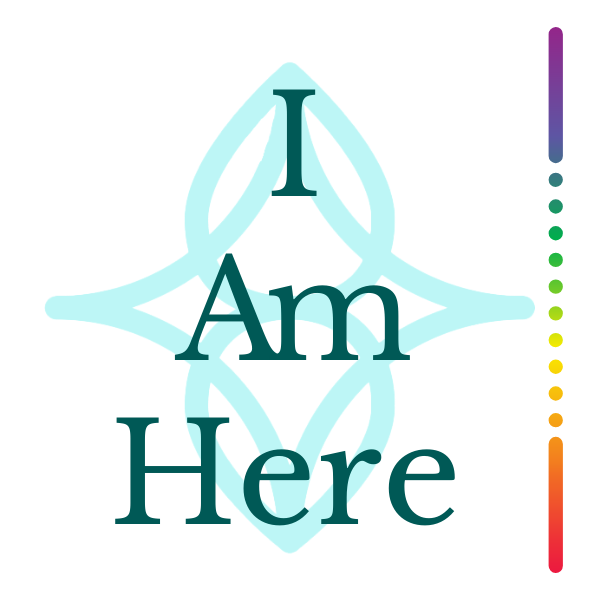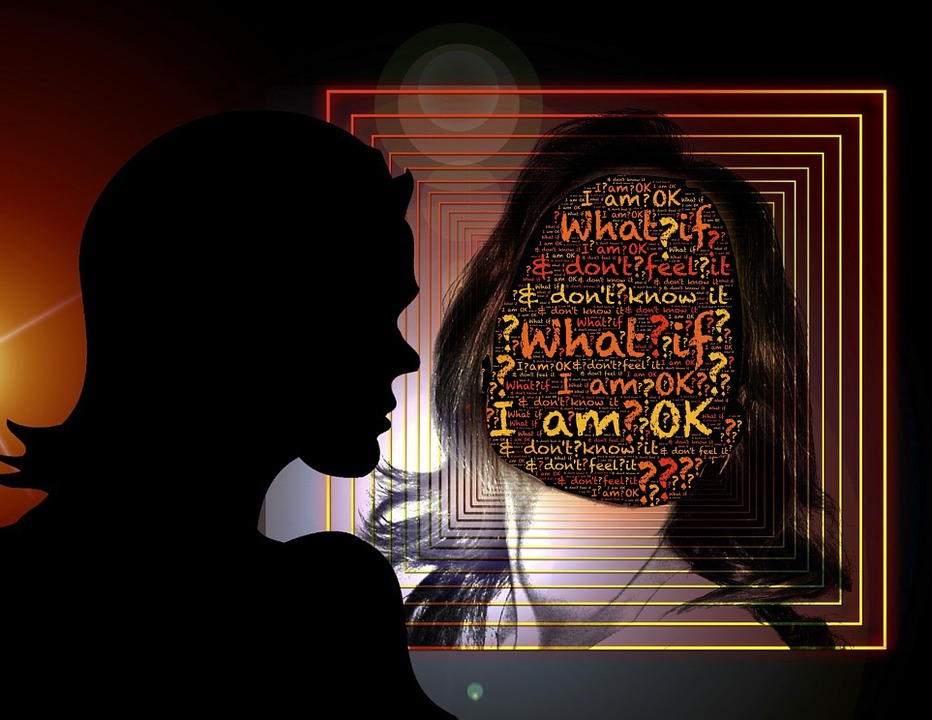Angel sits on the edge of her chair, in a heavenly unity with her father, mother and older brother. She has just eaten her scrambled eggs and is full of life and a joy at being together at the table with her family. Her Dad is explaining something to her brother. Angel tries to join in the conversation. They keep ignoring her, but she keeps trying. At a certain moment, Angel’s Dad rolls his eyes to the ceiling and grasps his car-keys, ready to leave. “Shut up, stupid!” hisses her brother. Her mother throws her a scornful glance. Angel’s throat clenches up, and she blushes deeply. She turns her eyes down, and experiences a tremendous jealousy and rage. It feels like her insides are falling through her ass into the pit of the hell. At four years old, Angel has received the first blow to the Beginners’ Mind. She doesn’t belong here, she is the ‘Stupid little girl’.
Out of the spirit of pure unity, the innocence of belonging and the joyful naturalness of engagement, Angel has found herself to be a refugee in an ‘adult’ world, unworthy even of an education in how to belong. As a girl, and a younger child, she has been shown that belonging is a survivor’s game without any training. Being ‘clever’ and knowing stuff, are the keys to acceptance, and anything else is simply not enough. At least, this is the belief that is forming.
Beginner’s Mind and the Stupid Wound
Such is the deformation of our current culture, that many of us are formed by traumas such as these. Don’t be fooled. Even (and perhaps especially) the most intelligent, informed adults are often driven by an early need to evade this banishment in the form of being a worth-less, stupid child. If it’s not in our family homes, its bred deeply into our education systems, that rest on a premise that the child’s head is stupid until filled with facts, sums and correct spellings; that judges the child on the basis of this stuff that it is supposed to shelter and regurgitate.
Education is in this era postulated as a means through which objects (of knowledge and information) are housed in the brain, to be reproduced correctly at the appropriate time. The power of inquiry, the openness of experience, the evolution of the neural ability to hold two opposing truths at once, or the conceptual (philosophical) mind that can transcend paradox – while naturally present in children – is left unseen and unaffirmed within the vulgarity of our educational ethos.
Over all this, the threat of being ‘crazy’ is dished out with school dinners as a fate almost worse than death, that can lead not only to exclusion, but also incarceration and torture. Whatever you do, don’t be crazy for long. If you become this mysterious thing called ‘insane’, you’ll cross the stark line of the consensual sane, and you’ll go down, until you won’t even know who you are anymore. It all starts with the carnal error of being ‘stupid’.
Fight, Fight, Freeze
The agony of rejection lights up the brain like a survival threat, mobilizing the central nervous system to take the action needed in order to stay alive. For Angel, this meant, that at all costs, she had to be clever. Driven by the open wound of not belonging, both as the younger child, and the girl, she began assimilating knowledge and stretching the mind to extreme degrees of thought. Her mental programming became more and more sophisticated to the extent that she learned how to smoke screen others with pure intelligence and knowledge whenever she felt excluded. Although she got a top degree from a top university, the mental charge was sourced in the deep, unfulfilled need to belong, and at a certain stage this became so intense that she moved into psychosis.
For other children, the same command “don’t be stupid” can have the effect of stupifying the brain. Neurons freeze in fear, and the whole mental game is cast aside in place of a kind of privileged rigidity of mind, based on a kind of arbitrary status in the world (“I’m a Christian white-skinned Dutch citizen, so I’m right because I say so.”). Just as Angel used thinking to escape pain, this alternative reaction uses lack of thinking to repress the pain of rejection. Still, the underlying condemnation is:”Shut up, Stupid” – a condemnation that can simmer in pain below the surface of conscious mind for decades.
Beginner’s Mind
It’s not wonder that the concept of Beginner’s Mind can feel horrific at first to many practitioners. The empty head, the brain without thought, the movement out of judgement, can be experienced as a dangerous risk. Thought itself has been conceived and formed as a buttress against precisely this undefended, transparent innocence. When the mind is pure, reality un-violated and consciousness un-controlled, then what demons of jealousy, pain and horror could come loose?
Because of this, the movement into Beginner’s Mind often takes some training and preparation. There needs to be a reversal of the belief that mind dictates reality, to a wisdom that reality, and mind, is actually formed by deeper wounding or responsiveness at the sentient and somatic levels of body, emotion and feeling. When we have developed a calmness and trust which allows the experience of pain to work out through the system, as well as flashes of emotion are traditionally forbidden, such as hate and jealousy, then Beginner’s Mind can open be degrees in a sacred return to the innocence of perception which is our birth-right.
Beginner’s Mind is not stupidity. To call it stupid would be like saying that a perfectly polished mirror is dull, as it has no mud on it. Beginner’s Mind reflects sensory input, even from the most subtle dimensions with precision, precisely due to the lack of interference of history. Nor is Beginner’s Mind unsafe. When sentient pain of separation, rejection, betrayal and loss, can be acknowledge or reflected, then the wider picture can also be perceived, without limitation or without buying into either-or equations. The “I” vanishes as illusion, as Beginner’s Mind purely reflects the ‘other’ from a consciousness that has no judgement. The togetherness already in this, is tremendously healing. Even a conflict is a seen conflict, and every threat is seen, all the way to its origin, including the natural response of the system to the danger.
Educational Trauma
This post began in describing how our educational ethos can be traumatic to our children. Perhaps it is apt to close by pointing out that our educational ethos is itself the result of collective trauma. Terrified of life, bewildered by the control we seem to have through our thinking, bereft of certainty and with nothing but arbitrary truth to clutch hold of, we are behaving like psychotics in our insistence that knowledge, mental content and thought take the prime position at the throne of collective reality.Believing that we can “think” our way out of trouble, while closing down our emotional receptivity and sense-perception to the nature of the trouble itself, we lock ourselves in a bedlam of dualistic thought, blinded to our own demons and delusional about the part played by “others” in bringing us down. Indeed, in the desperate seizure to “know who we are”, we forgot who we are, launching ourselves into an asylum of absurdity and surreal destiny.
Each mind that surrenders to the truth and innocence of its own perception prior to thought; each mind that prostates itself before the miracle of feeling sensation, inside and outside of the individual; each mind that reflects what is here, now, rather than what has been or what will be, is a mind of service to the sanity of the whole. The responsibility is with each and every one of us.




